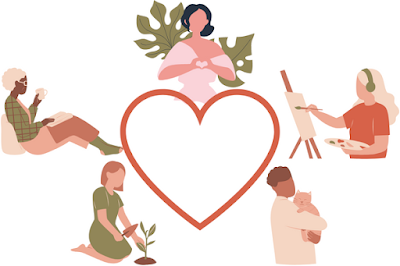Let's invent a word
 I was reading a book, a Christmas gift, and came across the word "perceptible." And then, two lines further, "resplendent." These words tickle my brain, in an archaic sense that recognizes I may never say these words aloud. These are reading words, and old ones at that.
I was reading a book, a Christmas gift, and came across the word "perceptible." And then, two lines further, "resplendent." These words tickle my brain, in an archaic sense that recognizes I may never say these words aloud. These are reading words, and old ones at that.
I enjoy the musicality of this vocabulary. It makes me wonder, how many words are we losing each decade, each generation, from our speech? What words did our parents say that have quietly faded, and are only captured and remembered in old videos and books?
Of course, we add words each year too. That is how language works; it is a continual evolutionary process. We laugh, as we get older, at the words that get added to Webster's Dictionary. We think, "rizz" and "sus" aren't words! Now they are. That's the point.
But as I look at the new vocab being added to our linguistics, I note a pattern of expediency. After all, "rizz" is shorthand for "charisma," and "sus" short for "suspicious." The fast-paced character of modern society does not like three-syllable words, opting for contractions that morph into single sounds. In work lingo, we lean into acronyms. KPIs and ROI, say the business professionals. Each career distinguishes itself with its own language, a code that inevitably makes it exclusive and unintelligible to outsiders.
Trading long words for short feels like a loss. What kind of person invented the word, indubitably? Five syllables. So fun to say. Not meant for efficiency, this word belies a past history where we had the time to speak slowly, to love long words. According to Webster, it arrived in Middle English in the 15th century from Latin indubitabilis, a combination of "not" and "open to doubt or question". It's difficult to imagine Brits in the 1400s having a better vocabulary than 21st-century me, but here we are.
Of course, inventing fun, long words is up to us. This is not meant to be a lament. Rather, a curiosity, a creativity. We have such global reach now, so many languages and cultures at our fingertips. There are beautiful languages that contain meanings that can't be easily translated into our English vocabulary. (Irish has the word bothántaíocht, the practice of calling on all your neighbors just to catch up on the gossip.)
If you were to invent a word that does not yet exist in English—a word that captures a moment or essence that you enjoy or experience—what would it be? Another Irish example literally meaning “clattering,” clagarnach is the sound of heavy rain on a rooftop. Your new word could be onomatopoeic like that. (Other words created from a sound include cuckoo and sizzle.)
Or, maybe you combine words like the modern "hangry" added to the dictionary in 2018. This is, of course, still a form of expediency, but much of our longer words are words that were once combined. Maybe while checking your email, eating brunch and talking about your bromance, you can think of another "combo" word to invent.
And we need new words for our new lived experiences. How can we best describe that vague unsettling feeling you get when you're looking at an AI-generated image or video? That moment before you notice the extra fingers or hands that explain "Ah, that's what's wrong here"? Likewise, we have "doomscrolling" (added in 2023), but how do you capture and describe the choice paralysis of searching through endless streaming services?
Word creation can also be revolutionary. In George Orwell's dystopian 1984, "Newspeak" was characterized by its elimination of words and excessive use of abbreviations with the government's goal of diminishing the range of thought. If we can't put a word to something, it is much harder to name, discuss, and question.
So let's invent new words, together. Anyone can do it. Yes, you. Not all new lingo will catch on, but it's up to our ingenuity to use the power of the pen to communicate shared human experiences—sometimes in beautiful, powerful, and poetic ways.


Comments
Post a Comment